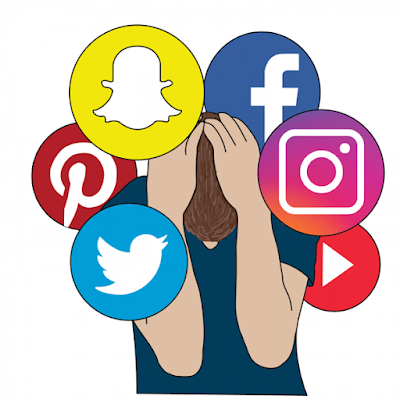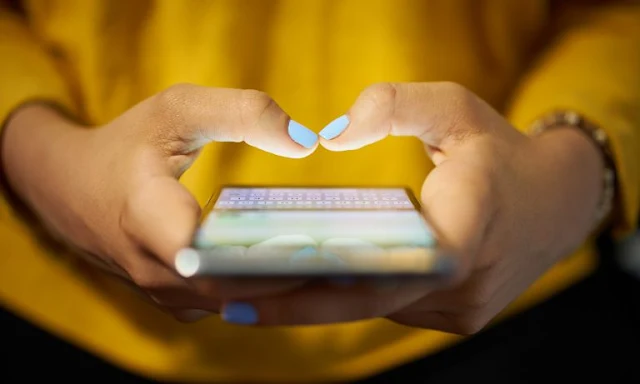It's a commonly accepted truth that humans have complex emotions and often need someone to help them work through them.
In honor of World Mental Health Day on 10 October, the World Health Organization (WHO) is committed to raising awareness of mental health issues around the world and mobilizing resources to support them. is. This year's theme was to make mental health and well-being a global priority for all.
According to WHO, mental health problems in India account for an estimated 2,443 disability-adjusted life years (DALYs) per 100,000 population. DALY is a measure of years lost due to early death, living in poor health, or disability. About 1.6 million people committed suicide in India last year, with a suicide rate of 21.1 per 100,000 people. The WHO estimates that between 2012 and 2030, mental health problems will cost Indians about $1.3 trillion in economic losses.
These days, seeking help for mental health issues has become much more acceptable, rather than the taboo it used to be. This led to the emergence of social media therapy.
Influencers include both professionals and non-professionals. The 27-year-old content his writer Sabih Rahman told moneycontrol:
People understand what can and cannot be trusted on social media, but he still has two sides to the coin. The Mental Health Debate As more people talk online about mental health issues, the stigma around this important topic is finally fading.
It is also worth noting that attitudes toward social media-enabled self-care have changed significantly. The simple act of sharing their thoughts, feelings and feelings can make people feel like they haven't experienced it all by themselves. 's social media accounts address the specific health issues they specialize in. They post in a detailed and well-researched way. The goal of nitpicking is to educate and stigmatize people so that those diagnosed can better understand themselves.
The 23-year-old singer and author, who was diagnosed with Borderline Personality Disorder (BPD) two years ago, said, "At first I was really overwhelmed and didn't know what it was. I'm trying to educate myself about this."
"Lots of profiles dealing with specific topics have more focused I have some information that I personally found very helpful when dealing with narcissistic abuse and the anxiety that followed.
The therapists I followed were very experienced," repeats the 34-year-old fashion designer, who requested anonymity. can, but this is rare.
According to Itisha Nagar, Assistant Professor of Psychology at the University of Delhi, when examining mental health advice shared on social media in 2010 compared to 2022, 2010 was far more accurate. , indicating that there was less misinformation. “One of her explanations for this is that for some, mental health advocacy becomes a means to an end, and the goal is simply to create content,” she said. say.
In honor of World Mental Health Day on 10 October, the World Health Organization (WHO) is committed to raising awareness of mental health issues around the world and mobilizing resources to support them. is. This year's theme was to make mental health and well-being a global priority for all.
According to WHO, mental health problems in India account for an estimated 2,443 disability-adjusted life years (DALYs) per 100,000 population. DALY is a measure of years lost due to early death, living in poor health, or disability. About 1.6 million people committed suicide in India last year, with a suicide rate of 21.1 per 100,000 people. The WHO estimates that between 2012 and 2030, mental health problems will cost Indians about $1.3 trillion in economic losses.
These days, seeking help for mental health issues has become much more acceptable, rather than the taboo it used to be. This led to the emergence of social media therapy.
What is Social Media Therapy?
The phenomenon of mental health influencers sharing advice on platforms such as Instagram, TikTok and Snapchat has come to be known as social media therapy. This may include advice from a therapist or a text post with encouraging thoughts. Generally "positive" content intended to provide comfort and support to people through online forums.Influencers include both professionals and non-professionals. The 27-year-old content his writer Sabih Rahman told moneycontrol:
People understand what can and cannot be trusted on social media, but he still has two sides to the coin. The Mental Health Debate As more people talk online about mental health issues, the stigma around this important topic is finally fading.
It is also worth noting that attitudes toward social media-enabled self-care have changed significantly. The simple act of sharing their thoughts, feelings and feelings can make people feel like they haven't experienced it all by themselves. 's social media accounts address the specific health issues they specialize in. They post in a detailed and well-researched way. The goal of nitpicking is to educate and stigmatize people so that those diagnosed can better understand themselves.
The 23-year-old singer and author, who was diagnosed with Borderline Personality Disorder (BPD) two years ago, said, "At first I was really overwhelmed and didn't know what it was. I'm trying to educate myself about this."
"Lots of profiles dealing with specific topics have more focused I have some information that I personally found very helpful when dealing with narcissistic abuse and the anxiety that followed.
The therapists I followed were very experienced," repeats the 34-year-old fashion designer, who requested anonymity. can, but this is rare.
According to Itisha Nagar, Assistant Professor of Psychology at the University of Delhi, when examining mental health advice shared on social media in 2010 compared to 2022, 2010 was far more accurate. , indicating that there was less misinformation. “One of her explanations for this is that for some, mental health advocacy becomes a means to an end, and the goal is simply to create content,” she said. say.
Self-Assessment
Advice on social media is much more accessible than professional help. In such cases, people turn to posts that cover the topic in a simpler, more straightforward format.This allows you to draw conclusions about your own mental health without professional help. This he can do in two ways. “In some cases, it can be very effective. Social media conversations can raise awareness about behaviors and feelings that people didn't know they could ask for help. can be normalized so that you can actually ask for help.”
Nagar says.
On the other hand, self-diagnosis can complicate the psychotherapy process for professionals. This is because the specialist must first make the patient give up self-diagnosis before starting treatment.
Janvi Kapur, Consultant at Tatsam Wellness, Gurugram, said: They are often surprised when we tell them that they must undergo proper testing in order to make a diagnosis. We promise to walk them through the process before helping them solve their problem."
Remember
Social media can be a tool of empowerment. . It can also be a means of providing support, enlightening, and addressing our problems through words of encouragement, community spirit, and humor. If the origin of the information is not clear from your account, it should be flagged as inaccurate. Therapists agree that mental health influencers can serve as a stepping stone to better mental health, but they are certainly no substitute for professional help.


Post a Comment